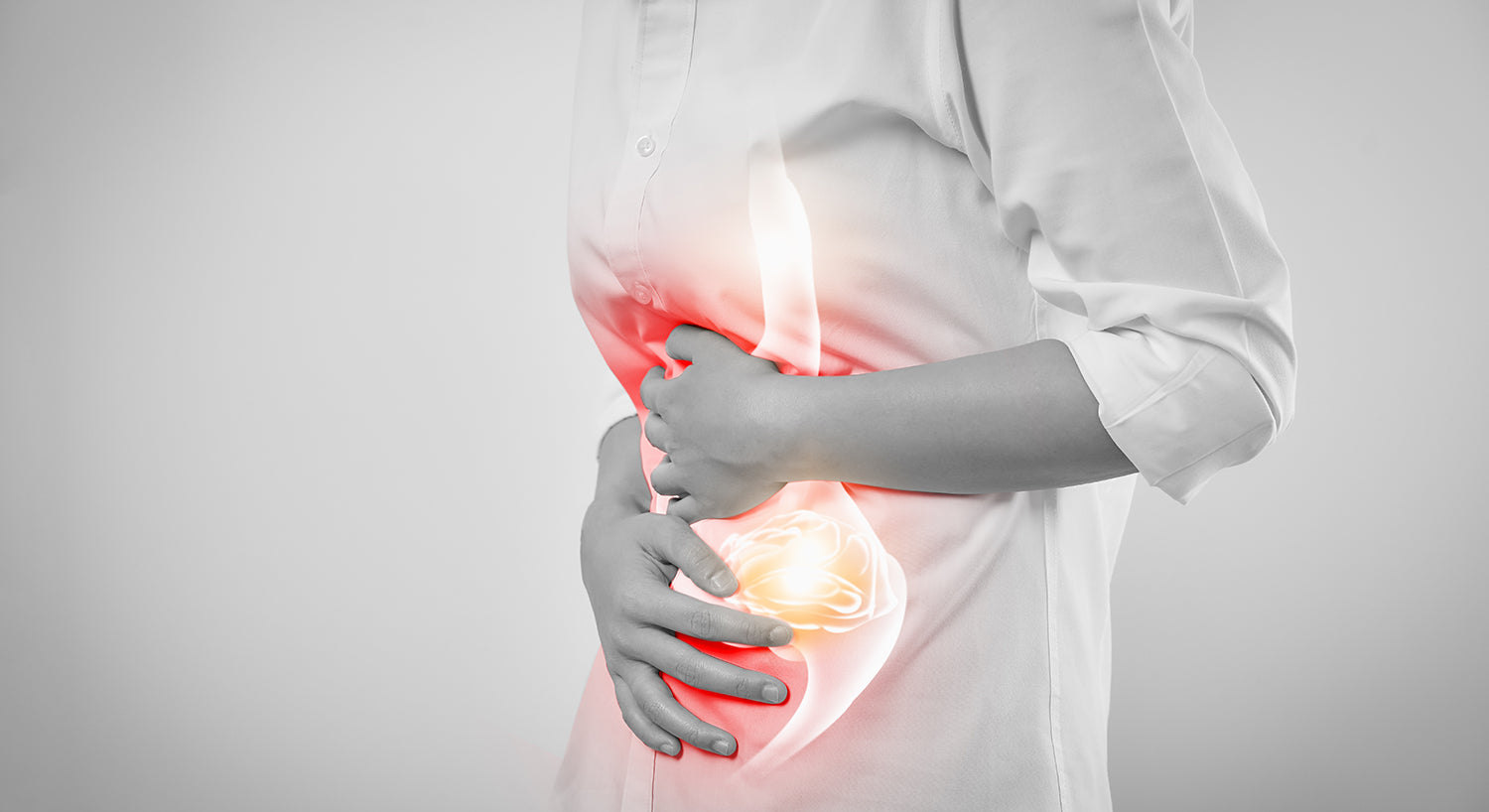
A considerable portion of the population globally is affected by stomach ulcers. Each year, 4 million people worldwide are diagnosed with stomach ulcers, and 12–14% of those cases result in deadly consequences such as a perforated gastrointestinal tract.
There is plenty of scientific evidence demonstrating how various natural cures can help soothe ulcers, albeit, in advanced stages, only appropriate medical care can be relevant. Let’s explore some of the natural remedies for treating stomach ulcers that are very effective and supported by scientific research in this post. Let’s go!
A bit about stomach ulcer
Ulcers develop on the lining of the digestive tract due to damage caused by stomach acid. Ulcers can develop in the esophagus, stomach, or duodenum, the first segment of the small intestine.
The mucus layer and other natural mechanisms protect the digestive system against powerful acids and digesting enzymes. However, in such a scenario, each process is impeded, and the digestive tract’s epithelium is injured. If these ulcers are not adequately treated, they could result in fatal gastrointestinal perforations and infections.
The H. Pylori bacteria and NSAIDs are the most common cause of ulcers. People also blame stress and spicy foods for causing ulcers, but that’s not true, though, it might aggravate the pre-existing condition.
People often wonder - how long does it take for a stomach ulcer to heal? But healing depends on several factors like underlying cause, progression, location, and consistency with the remedy. Mostly 1-3 months in, you can see the results!
6 Evidence-based natural ways to heal stomach ulcers
New Zealand’s Manuka honey
The Leptospermum scoparium, or manuka tree, is the source of manuka honey, a monofloral type of honey. It is a brown-hued honey that has received a lot of attention, particularly in relation to its antimicrobial activities, antioxidant efficacy, and potential involvement in wound healing.
Manuka honey has been found to possess the highest concentration of phenolic and flavonoid compounds, including pinobanksin, pinocembrin, and chrysin, which have been linked to powerful therapeutic effects. It has a high concentration of methylglyoxal, a potent antimicrobial compound.
Also, inhibiting inflammatory markers, including TNF-, IL-1, and IL-6 gives manuka honey gastroprotective effects. According to research, the development of stomach ulcers is significantly influenced by these proinflammatory cytokines. Further, manuka honey shields cells from free radical damage and enzymatic oxidation, thus protecting the stomach lining.
Buy: FREZZOR Manuka Honey UAF1000+™
Probiotics
Numerous studies have shown probiotics to be effective in treating stomach ulcers. It aids in the reduction of harmful bacteria in the gut and the prevention of its allergic, inflammatory, and malignant alterations.
According to several studies, probiotics not only prevent the onset of gastric mucosal lesions but also hasten the healing of stomach ulcers. By increasing prostaglandin, mucous secretion, tight junction protein expression, cell proliferation, and suppressing apoptosis, probiotics can also maintain the integrity of the stomach mucosal barrier.
Also Read: Fermented Foods or Probiotics?
Also Read: 7 Science-based Ways to Improve Your Gut Microbiome
Ginger
Since the dawn of time, ginger has been utilized as a natural remedy for stomach problems. In vitro, both ginger’s free and bound phenolics can potentially prevent ulcers by inhibiting H+, K+-ATPase, and H. pylori growth.
Similar to lansoprazole, a well-known antiulcer medication, which offers 80% protection against ulcers at 30 mg per kilogram of body weight dosage, ginger rhizome aqueous extract at 200 mg per kilogram of body weight, protected ulcer lesions up to 86% according to a research study.
Additionally, it has antioxidant potential and stops lipid and DNA peroxidation by free radicals. Its anti-oxidative property considerably lowers ulcer conditions and thus supports the promises made by ethnomedicine.
Garlic
Garlic is one of the best gastro-protecting natural foods. A 2016 study found that raw garlic, which may be prescribed in addition to standard medications for the treatment of gastric H. pylori infection, has strong antibacterial effects against H. pylori living in the stomach. How to heal a stomach ulcer from stress? Grab garlic! According to studies, garlic extract significantly reduced the incidence of duodenal and stomach ulcers brought on by cysteamine and stress.
It exhibits strong anti-inflammatory and antioxidant properties by lowering inflammatory mediators and enhancing innate antioxidants. According to the findings of a study, aged garlic improved the histological abnormalities in gastric tissue and demonstrated a promising gastroprotective action in gastric ulcers.
Turmeric
Turmeric, too, has been used for its therapeutic potential since time immemorial. The most active ingredient in turmeric has been identified as curcumin, which has a significant antiulcerogenic and gastroprotective action.
It has been demonstrated to be a valuable therapeutic agent with no side effects and a cheaper alternative for treating gastrointestinal illnesses. Both the H. pylori infection and the gastric damage caused by it are restored by curcumin.
In an animal experiment, it was discovered that turmeric enhances mucin secretion, acting as a gastro-protectant against irritants. Additionally, the release of many inflammatory markers, including cytokines, was decreased by its regular consumption.
Flavonoids
Both animal and lab research investigations showed that flavonoids, the most prevalent polyphenols in plants, had gastroprotective properties against peptic ulcers. Tea, fruits, vegetables, soy, licorice, and honey are the primary sources of these compounds.
Flavonoids have properties that restrict the release of acids, increase the production of gastric mucus, and secrete more bicarbonate, all of which have an antiulcer impact. Flavonoids also strengthen the mucosa’s cytoprotective, antioxidant, anti-inflammatory, and antibacterial defenses against peptic ulcers. One kind of flavonoid typically exhibits antiulcer functions via various processes, making them very efficient in healing and protection.
Also Read: 7 Warning Signs Of An Unhealthy Gut
There we are! Hopefully, you have got your answer to - how to heal a stomach ulcer with food. Ever thought these ordinary food items lying around in your kitchen can help you manage your condition? Try them out and find out which works well for you. Do you know any other science-based natural remedies? Comment below and let us know!
